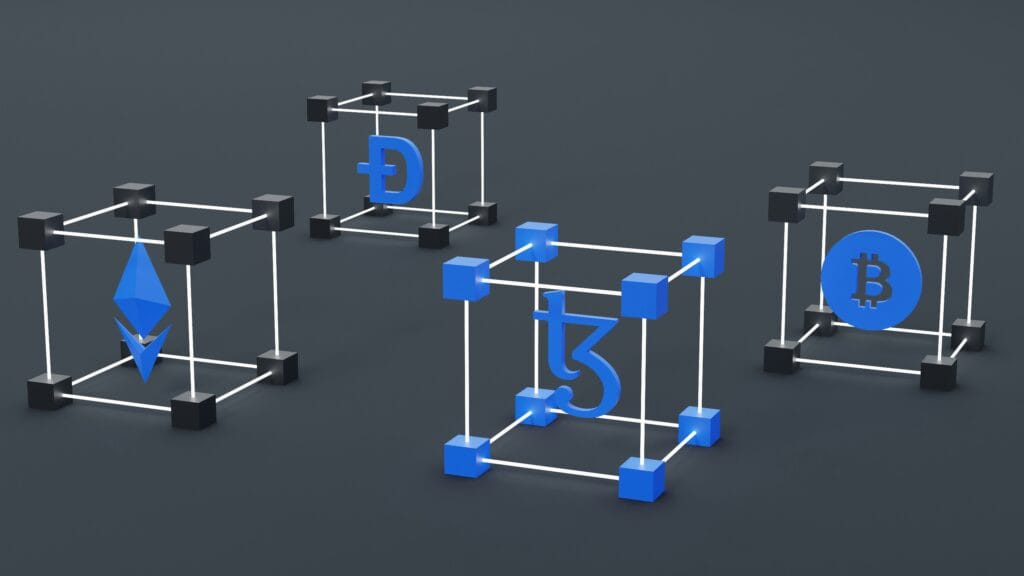
Introduction
Think of a digital diary where every entry is permanently recorded, and once written, no one can erase or alter it. Each new entry links to the previous one, creating a secure chain of records. This is similar to how blockchain works! It securely records data, preventing unauthorized changes and ensuring fairness and transparency.
What is Blockchain?
Blockchain functions as a digital record book (ledger) that stores information across multiple computers instead of a single central location. It records data in “blocks,” and once a block is full, it connects to the previous one, forming a chain. As a result, altering old records is nearly impossible without changing the entire chain, making blockchain highly secure.
Key Features of Blockchain:
- Decentralization – No single person or company controls the blockchain; it operates across multiple computers.
- Immutability – Once recorded, data remains unchanged and cannot be deleted, ensuring security and trustworthiness.
- Security – Blockchain uses encryption to protect data from hackers.
- Transparency – Everyone on the network can view transactions, promoting fairness and trust.
- Smart Contracts – Special programs automatically execute agreements when conditions are met, eliminating the need for intermediaries.
Where is Blockchain Used?
Many industries use blockchain to enhance security and transparency. Below are some real-world applications:
- Cryptocurrency – Bitcoin and Ethereum rely on blockchain to secure transactions and eliminate the need for banks. As a result, users can send and receive money directly without intermediaries.
- Supply Chain Management – Businesses track products from manufacturing to delivery, ensuring quality and fraud prevention. Consequently, companies can improve efficiency and reduce counterfeiting.
- Finance & Banking – Banks process transactions faster, more securely, and at lower costs, especially for international payments. Furthermore, blockchain reduces fraud by providing a transparent transaction history.
- Healthcare – Hospitals store patient records securely, ensuring privacy and providing doctors with accurate medical histories. Therefore, patient care becomes more efficient and reliable.
- Real Estate – Property transactions become more efficient by reducing paperwork and preventing fraud. Moreover, blockchain ensures that ownership records remain tamper-proof.
- Voting Systems – Blockchain enables secure and tamper-proof elections, reducing voter fraud. As a result, election transparency and trust increase.
- Identity Management – Individuals verify their identity securely, reducing identity theft risks. Additionally, blockchain allows users to control access to their personal data.
- Gaming & NFTs – Players own and trade digital assets, while NFTs (Non-Fungible Tokens) facilitate unique digital ownership. Consequently, blockchain is revolutionizing the gaming and digital art industries.
- Energy Sector – Blockchain supports peer-to-peer energy trading, especially in renewable energy markets. As a result, individuals can buy and sell electricity directly without relying on traditional energy providers.
- Education – Universities verify degrees and certificates, preventing credential fraud. This ensures that academic qualifications remain authentic and verifiable.
How to Learn Blockchain
For those interested in blockchain, here are some great resources:
YouTube Channels:
- FreeCodeCamp – Beginner-friendly blockchain and smart contract tutorials.
- Simplilearn – Detailed explanations of blockchain concepts.
- Dapp University – Focuses on blockchain application development.
Online Courses & Websites:
- edX (www.edx.org) – Courses from universities like MIT and Berkeley.
- Coursera (www.coursera.org) – Features blockchain courses from IBM and Princeton.
- Udemy (www.udemy.com) – Affordable blockchain development courses.
Books on Blockchain:
- Blockchain Basics by Daniel Drescher – A step-by-step guide for beginners.
- Mastering Blockchain by Imran Bashir – A deep dive into blockchain concepts.
- The Blockchain Revolution by Don Tapscott and Alex Tapscott – Explains blockchain’s impact on industries.
Conclusion
Blockchain is an innovative technology that extends beyond Bitcoin. Various industries use it to improve security, efficiency, and transparency. Therefore, learning blockchain can open doors to exciting career opportunities in technology, finance, and beyond!